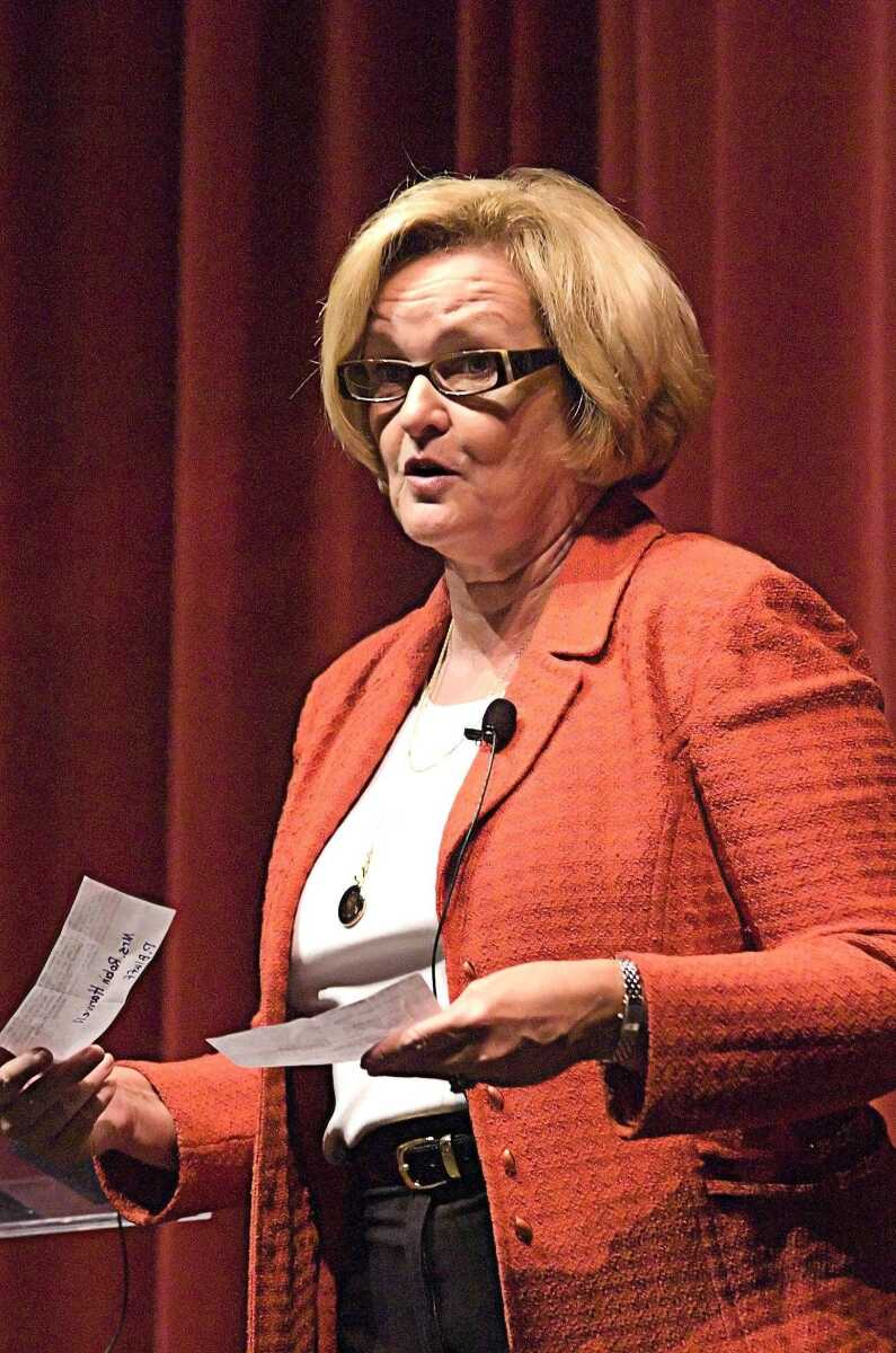Sen. McCaskill renews push against earmarks
The earmark mentality in Washington, D.C. destroys the chance for fair competition in many federal grant programs, U.S. Sen. Claire McCaskill said today after attempting to block earmarks in a $20 million program. McCaskill made her remarks in a conference call with Missouri reporters that also touched on the war in Afghanistan and the ongoing debate on health insurance legislation. ...
The earmark mentality in Washington, D.C., destroys the chance for fair competition for many federal grants, U.S. Sen. Claire McCaskill said Wednesday after attempting to block earmarks in a $20 million program.
McCaskill made her remarks in a conference call with Missouri reporters that also touched on the war in Afghanistan and the ongoing debate on health insurance legislation.
The Missouri Democrat, who hasn't asked for any earmarks since taking office in 2007, said senior lawmakers of both parties gobble up money that should be available for competitive grants.
McCaskill's target Wednesday was the Save America's Treasures program, a public-private partnership that provides grants to preserve nationally significant artifacts, structures and sites. Of the $20 million appropriated for the program, she said, $10 million is set aside in earmarks.
On the Senate floor, McCaskill sought to overcome a debate rule barring amendments to the bill funding the program. She also noted that two economic development programs, the Neighborhood Initiative Program and the Economic Development Initiative, both begun as competitive grant programs, are now entirely earmarked.
McCaskill admitted the program she targeted was small but said the symbolism is important. Only a handful of members don't seek earmarks, she said, but the number of senators willing to vote to remove earmarks is growing.
The problem is growing, too, McCaskill said, noting that in a transportation appropriations bill approved last week, four senior members of the Senate Appropriations Committee took home more than half the earmarked funds.
Change will take time, McCaskill said.
"It is the process," she said. "It is the culture. It is the notion that it is OK for four senators to get half the money in an earmarked bill. If you were here and saw how this works, it is just bizarre how this works. Nobody understands it. Some of the ranking members get a honey pot, and some don't. It is up to the whim of the subcommittee chairman. As an auditor, it is offensive to me that this is the way we would distribute public money."
McCaskill did not try to block any earmarks sought for Missouri projects. U.S. Sen. Kit Bond and U.S. Rep. Jo Ann Emerson, both Republicans, regularly use earmarks to fund projects sought by constituents.
"People need to understand that Kit Bond has spent many, many years here to build up seniority to participate in this system as it exists," McCaskill said. "I am not a member of the Appropriations Committee. I am not a ranking member. In the long run, if we begin to reform this process, Missouri will be just fine. It is a big state, has a lot of water and a lot of transportation needs."
Bond, who is the ranking Republican on the Transportation/HUD Appropriations Subcommittee, was not one of the four members who received more than half the earmarks, McCaskill noted.
In a statement issued late Wednesday, Bond said Congressional earmarks are more responsive to constituents than giving all the power to distribute federal money to executive agencies. Only about 2 percent of all federal spending is earmarked.
"Some politicians may trust only bureaucrats to do all the earmarking," Bond said. "They may not trust themselves or local citizens to set priorities, but I sure do. If elected officials don't have a say, Washington bureaucrats, many of whom have never been to Missouri, will be left in total control of our taxpayer dollars. That's not a risk I'm willing to take."
On health care, McCaskill said she was waiting for a final bill to emerge before agreeing to support it. She said she continues to want a public option plan to allow people who cannot find affordable insurance to purchase it through the government.
McCaskill said she expects action this year because failure to change health insurance will doom the nation to huge deficits for the foreseeable future. "This is hard, this is big and I think the American people deserve every effort we can make to get it and not a political food fight."
When asked about Afghanistan, McCaskill said the lessons of Iraq show that a purely military plan won't succeed. "It is not the United States that is going to win in Afghanistan, it has to be the Afghan people. We have got to help the Afghan people win the war."
rkeller@semissourian.com
388-3642
Pertinent address:
U.S. Capitol Building, Washington, D.C.
Connect with the Southeast Missourian Newsroom:
For corrections to this story or other insights for the editor, click here. To submit a letter to the editor, click here. To learn about the Southeast Missourian’s AI Policy, click here.











